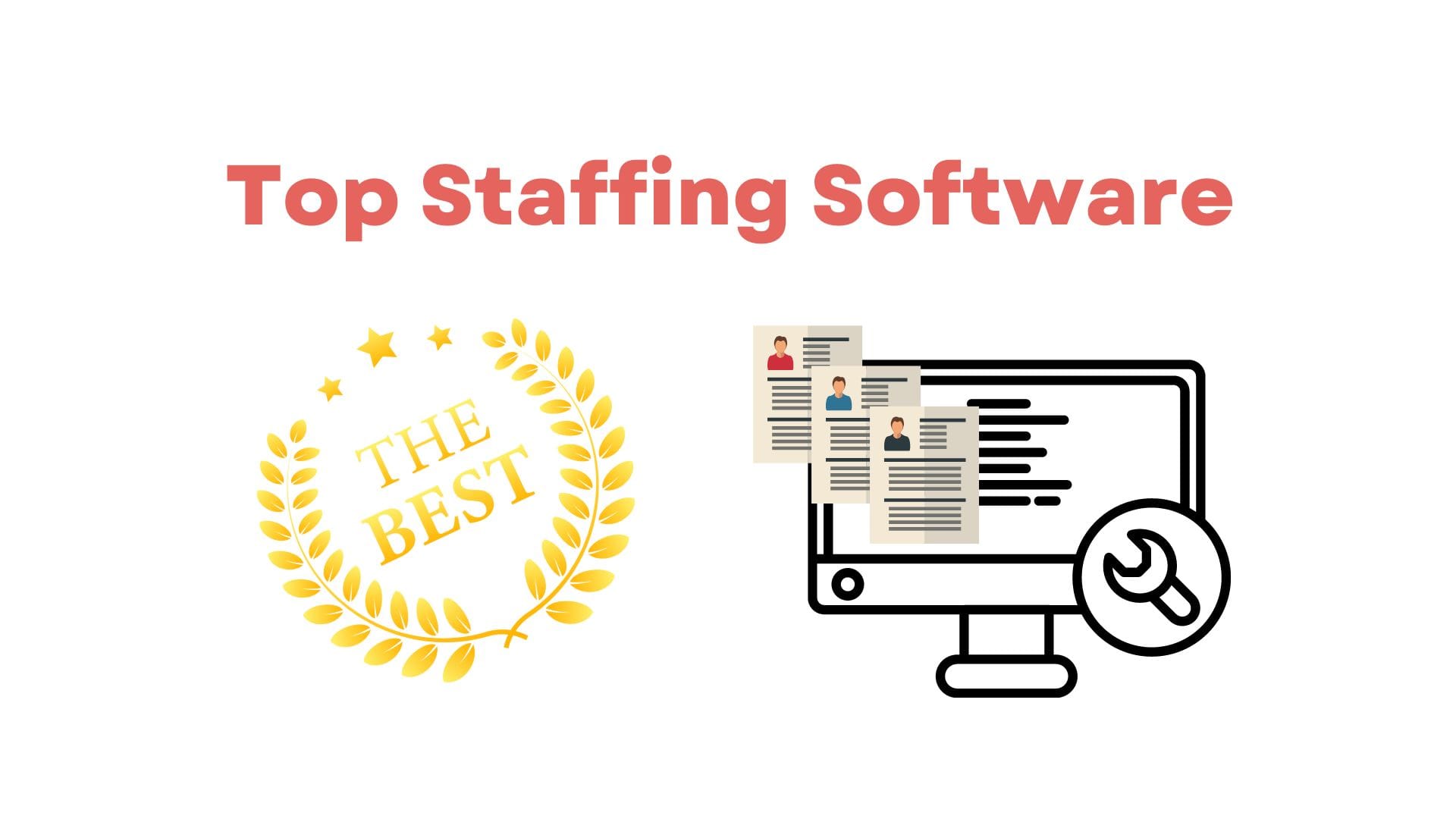Top Staffing Software - Tools Recruiters need to know in 2024

In today’s competitive job market, organizations are constantly seeking ways to improve their recruiting processes and attract top talent. One of the key tools for achieving this goal is staffing software. Staffing software refers to a suite of digital tools that help recruiters automate various aspects of the recruitment process, from posting job openings to screening resumes and scheduling interviews. These software tools are designed to make the recruitment process more efficient, effective, and data-driven.
Two key types of staffing software are AI recruitment software and private resume databases. AI recruitment software uses machine learning algorithms to automate various aspects of the recruitment process. This software can analyse resumes for relevant keywords and experience, match candidates to job requirements, and predict candidate suitability for a position. AI recruitment software can significantly reduce the time and effort required to screen resumes and identify suitable candidates for a position. Some examples of AI recruitment software include HireVue, Mya Systems, and Tobu.ai, which offers a suite of AI-powered tools including resume parsing, candidate matching, and predictive analytics.
Private resume databases are collections of resumes that are only accessible to the recruiter or recruiting team. Private resume databases can save recruiters time by providing them with a pool of pre-screened candidates. By accessing these databases, recruiters can identify potential candidates who may not be actively seeking new opportunities. Private resume databases are especially useful for niche industries or highly specialized roles where qualified candidates may be difficult to find. Examples of private resume databases include Resume-Library and JobStars.
The Types of Staffing Software
In this article, we will explore some of the top staffing software tools that recruiters should know in 2024, including AI-powered recruitment software and private resume databases. We will also provide examples of each type of software and discuss how these tools can improve the recruitment process for organizations of all sizes.
- Applicant Tracking Systems (ATS): ATS software is designed to help recruiters manage the recruitment process from start to finish. These tools can automate tasks such as job posting, resume screening, candidate communication, and interview scheduling.
Some examples of ATS software include Workable, Greenhouse, and Lever.
- Candidate Relationship Management (CRM): CRM software helps recruiters manage relationships with candidates by organizing candidate information and communication. These tools can help recruiters build and maintain a talent pool of qualified candidates.
Some examples of CRM software include Beamery, Recruitee, and Zoho Recruit.
- Sourcing and Recruitment Marketing: Sourcing and recruitment marketing software helps recruiters identify and attract qualified candidates. These tools can help recruiters create job postings, distribute them to job boards, and track the effectiveness of recruitment advertising campaigns.
Some examples of sourcing and recruitment marketing software include Indeed, Monster, and LinkedIn Recruiter.
- Assessment and Selection: Assessment and selection software helps recruiters evaluate candidate skills and fit for a role. These tools can include online assessments, video interviews, and gamification to assess candidate capabilities.
Some examples of assessment and selection software include HireVue, Pymetrics, and TalentSorter.
- Resume Extractors: Resume extractors are a type of AI-powered recruitment software that automates the process of extracting relevant information from resumes. These tools can save recruiters significant time and effort by parsing resumes for key information such as education, work experience, and skills.
Tobu.ai is an example of a resume extractor that uses machine learning to extract information from resumes and create candidate profiles.
Incorporating Tobu.ai’s resume extractor into a recruitment workflow can help recruiters save time by automating the time-consuming process of manual resume screening. Tobu.ai’s technology can accurately and quickly parse resumes, creating candidate profiles that recruiters can easily review and evaluate. By leveraging AI-powered resume extractors like Tobu.ai, recruiters can focus their efforts on engaging with candidates and building relationships, rather than spending hours manually screening resumes.
What have we learnt so far?
In this article, we’ve explored different categories of staffing software and how they can benefit recruiters in 2024. We started by defining staffing software and highlighting its importance in today’s competitive job market. We then discussed two key types of staffing software – AI recruitment software and private resume databases – and provided examples of each. Finally, we broke down different categories of staffing software, including applicant tracking systems, candidate relationship management, sourcing and recruitment marketing, assessment and selection, and resume extractors.
By using staffing software, recruiters can streamline their recruitment process, save time, reduce costs, and improve the quality of their hires.
- AI-powered recruitment software like Tobu.ai can accurately and quickly parse resumes, creating candidate profiles that recruiters can easily review and evaluate.
- Private resume databases can provide a pool of pre-screened candidates that may not be actively seeking new opportunities.
- Applicant tracking systems can help recruiters manage the recruitment process from start to finish.
- Candidate relationship management software can help recruiters build and maintain a talent pool of qualified candidates.
- Sourcing and recruitment marketing tools can help recruiters attract qualified candidates, while assessment and selection software can help evaluate candidate skills and fit for a role.
In conclusion, there are a variety of staffing software tools available to recruiters, each designed to automate different aspects of the recruitment process. With the fast-paced evolution of technology, we can expect even more innovative staffing software solutions in the future, helping recruiters stay ahead of the game in attracting and retaining top talent.